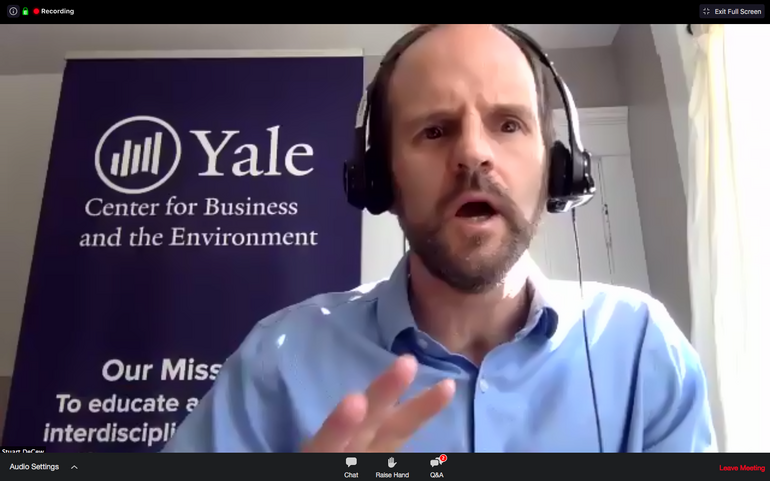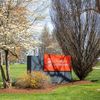Processing Your Payment
Please do not leave this page until complete. This can take a few moments.
-
News
-
Editions
-
- Lists
-
Viewpoints
-
HBJ Events
-
Event Info
- 2024 Economic Outlook Webinar Presented by: NBT Bank
- Best Places to Work in Connecticut 2024
- Top 25 Women In Business Awards 2024
- Connecticut's Family Business Awards 2024
- What's Your Story? A Small Business Giveaway 2024 Presented By: Torrington Savings Bank
- 40 Under Forty Awards 2024
- C-Suite and Lifetime Achievement Awards 2024
- Connecticut's Health Care Heroes Awards 2024
-
-
Business Calendar
-
Custom Content
- News
-
Editions
View Digital Editions
Biweekly Issues
- April 15, 2024
- April 1, 2024
- March 18, 2024
- March 4, 2024
- February 19, 2024
- February 5, 2024
- January 22, 2024
- January 8, 2024
- Dec. 11, 2023
- + More
Special Editions
- Lists
- Viewpoints
-
HBJ Events
Event Info
- View all Events
- 2024 Economic Outlook Webinar Presented by: NBT Bank
- Best Places to Work in Connecticut 2024
- Top 25 Women In Business Awards 2024
- Connecticut's Family Business Awards 2024
- What's Your Story? A Small Business Giveaway 2024 Presented By: Torrington Savings Bank
- 40 Under Forty Awards 2024
- C-Suite and Lifetime Achievement Awards 2024
- Connecticut's Health Care Heroes Awards 2024
Award Honorees
- Business Calendar
- Custom Content
Start me up: Yale student teams pitch entrepreneurial ventures
 Stuart DeCew, director of the Yale Center for Business & the Environment, introduced Thursday morning’s presentation by finalists for the $25,000 Sabin Prize.
Stuart DeCew, director of the Yale Center for Business & the Environment, introduced Thursday morning’s presentation by finalists for the $25,000 Sabin Prize.
The first-ever entirely virtual Startup Yale innovation summit kicked off Thursday morning. The two-day event is Yale’s biggest entrepreneurship awards program, featuring teams of students (undergrad, grad and recent grad) working to start new companies.
The teams present comprehensive pitches of their business plans and receive detailed feedback from experts within the target industries. Best of all, the winners receive substantial cash prizes to help set their (sometimes) world-changing ideas in motion in the commercial realm.
Thursday morning’s inaugural session featured presentations by four student-led teams in pursuit of the Sabin Prize, managed by the Yale Center for Business and the Environment. Supported by the Sabin Foundation, the competition awards a $25,000 cash prize to a student-led team with the most promising venture to advance a more sustainable way of life.
Each year there are dozens of applications for the Sabin Prize; Startup Yale narrowed the field down to four finalists. Each team had a ten-minute presentation followed by ten minutes of Q&A by the panelists. The finalists each receive $2,500. The winning prize will be announced at a separate event this fall.
The Final Four ventures, in order they presented Thursday morning:
- AgriCORE — Team of three Yale College juniors developing a test to measure and analyze the carbon content of soil on the 2.2 million U.S. farms. Farmers routinely test their soil now for a variety of characteristics, but most tests analyze the soil off site and are expensive. The AgriCORE product performs extraction, drying and analysis onsite within a matter of minutes, the team said. If they care enough about the carbon content of their soil to pay $1,600 for an AgriCORE test kit, “progressive” farmers (which the team estimate numbers some 510,000 nationwide today) may potentially sell carbon offsets down the road.
- Cambium Carbon — This team, spearheaded by students from the Yale School of Forestry & Environmental Science, hopes to plant a billion trees by 2030. The founders said that 36 million trees fall in U.S. cities each year. Not only do most of these go to waste, they also cost big bucks to dispose of: some 12 million tons of wood are taken to urban landfills each year, which costs some $600 million for transportation and disposal. Cambium Carbon’s pathway to revenue structure includes harvesting “urban wood” and transferring it to millers for transformation into saleable products such as wooden furniture. cambiumcarbon.com.
- Floe — ”The Smart Solutions to Ice Dams.” In case you were wondering, ice dams are the product of ice buildup on residential and commercial roofs, which can lead to damage and even roof collapse. In New England alone last year some 30,000 insurance claims in excess of $20,000 were filed for ice-dam damage and repair, said the Floe team. The existing U.S. de-icing industry uses methods (steaming services) and/or products (heating cables) that are eco-destructive and energy-intensive. Instead, Floe’s “solution” is a liquid de-icer that is pumped onto roofs, triggered by onboard sensors using internet connectivity. The product would be part of a subscription service priced according to roof size and composition (the creators said they would concentrate on the bigger-ticket commercial market). The Floe team, a trio who met as MIT undergrad engineering students, say the potential U.S. market is $5 billion annually (!).
- Upright — Bills itself as “oat milk as delicious as dairy.” The founders, Betty Tang and Thu Ra from the Yale School of Management, said that the U.S. food system emits 25 percent of global greenhouse gas emissions. Cows are bad! But not all dairy alternatives are created equal: The Upright team said that almond milk, for example, requires 24 gallons of water to yield a single cup. Lactose-free Upright instant oat milk (just add water) contains 8 grams of oat protein per cup, versus 1 gram of protein per cup of almond milk. Feeling their oats, the founders aim to capture a healthy share of what they say will by 2030 be a billion-dollar market by focusing on MIllennials with children. uprightoats.com

2022 Giving Guide
This special edition informs and connects businesses with nonprofit organizations that are aligned with what they care about. Each nonprofit profile provides a crisp snapshot of the organization’s mission, goals, area of service, giving and volunteer opportunities and board leadership.
Learn more
Subscribe
Hartford Business Journal provides the top coverage of news, trends, data, politics and personalities of the area’s business community. Get the news and information you need from the award-winning writers at HBJ. Don’t miss out - subscribe today.
Subscribe
2024 Book of Lists
Delivering Vital Marketplace Content and Context to Senior Decision Makers Throughout Greater Hartford and the State ... All Year Long!
Read Here-
2022 Giving Guide
This special edition informs and connects businesses with nonprofit organizations that are aligned with what they care about. Each nonprofit profile provides a crisp snapshot of the organization’s mission, goals, area of service, giving and volunteer opportunities and board leadership.
-
Subscribe
Hartford Business Journal provides the top coverage of news, trends, data, politics and personalities of the area’s business community. Get the news and information you need from the award-winning writers at HBJ. Don’t miss out - subscribe today.
-
2024 Book of Lists
Delivering Vital Marketplace Content and Context to Senior Decision Makers Throughout Greater Hartford and the State ... All Year Long!
ABOUT
ADVERTISE
NEW ENGLAND BUSINESS MEDIA SITES
No articles left
Get access now
In order to use this feature, we need some information from you. You can also login or register for a free account.
By clicking submit you are agreeing to our cookie usage and Privacy Policy
Already have an account? Login
Already have an account? Login
Want to create an account? Register
Get access now
In order to use this feature, we need some information from you. You can also login or register for a free account.
By clicking submit you are agreeing to our cookie usage and Privacy Policy
Already have an account? Login
Already have an account? Login
Want to create an account? Register






0 Comments